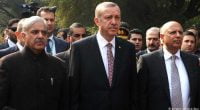Why was I mistaken about political Islamism?

Date posted: August 21, 2015
For the radical wing of political Islamism, a democratic regime based on the decisions of the people is blasphemy. It should be ruled out because it was an invention of the Western world. Some subscribers to Islamist movements have always viewed democracy in this way.
Some political Islamists, on the other hand, have embraced democracy and base it on the principle of consultation that is in the Quran. They rely on the ideology of transforming society through the state apparatus, but as a method, they agree that democracy is a means to achieve this goal. The Muslim Brotherhood in Egypt and the National Outlook movement in Turkey are examples of this.
There is no need to say anything about the first group, given their extremist stance. But there have always been question marks around those who adopted democracy as a means. Did their reliance on elections and popular votes as a method make them democrats? Or was democracy just a tool for them to seize power? Would they recognize the rights of others when they came to power?
Most of our professors raised these questions in the early 1990s when I was a political science student, and domestic and international circles also discussed the matter. Back then, I was always suspicious of this criticism. I was not interested in political Islamist ideology, but as a religious Muslim, I believed that criticism of it was founded in stereotypes and prejudice against Islam.
Political Islamist parties have expressed their original ideologies under titles such as the National Outlook (Milli Görüş) and the Just Order (Adil Duzen) because of legal barriers. These parties agreed to leave power if they were to lose an election. Though they have been shut down many times, they came to power as coalition partners in the 1970s and 1990s. They did a good job at local administration, which attracted the attention of the people. But they had to adopt a balanced approach because of the influence of civilian and military elements in the country.
President Recep Tayyip Erdoğan and his friends who were part of this experience created the Justice and Development Party (AKP) with a reference to conservative democracy rather than Islamism. They strongly rejected the definition of Islamism. They were eager to follow in the footsteps of former Prime Minister Adnan Menderes and former President Turgut Özal. They took off their National Outlook shirts. They would work for EU membership. They would maintain good relations with both the West and the Muslim world.
Those who took the experience of political Islamism in Iran and other countries seriously have always been suspicious. They have always argued that Erdoğan and his friends were only using this discourse as a tactic, and that they never really abandoned the idea of Islamism.
Just as I did not take criticism of Islamism raised by my political science professors seriously two decades ago because I thought it was founded in the professors’ negative stance against Islam, I thought this time that Erdoğan and his friends were being targeted because of their religious identity. Their reforms for the EU process and their strong relations with both the West and the Muslim world were my references for this opinion. Besides, all the democrats in Turkey and in the world, were praising this transformation.
When it became apparent that they did not have to act timidly because the military guardianship was no longer influential in the aftermath of the 2010 referendum, Erdoğan and his team went back to their original stance, which saw an independent judiciary, free media and a free civil society as obstacles rather than crucial components of a democratic order.
Those who were not part of the AKP were potential enemies of the state. Parties that received 60 percent of popular support were called illegal structures and accused of being part of a Zionist-Christian alliance. Shutting down the mosque of dissidents, not recognizing electoral results, raiding preschools and polarizing the public were routine practices of this line.
This is the price I had to pay for being ignorant of what science and experience actually reveal. What is grave is that efforts made over the last 80 years have been lost to authoritarianism, populism and corruption.
A case showing that Islam and democracy could be reconciled was proven wrong. As noted by Professor Yüksel Taşkın, a college classmate, in the Aksiyon weekly, in the story of the Islamism of the AKP, the democracy deficit was filled by liberals and the Hizmet movement, inspired by Turkish Islamic scholar Fethullah Gülen, but the AKP failed to internalize democracy themselves.
Source: Today's Zaman , August 21, 2015
Tags: Islamic World |
























